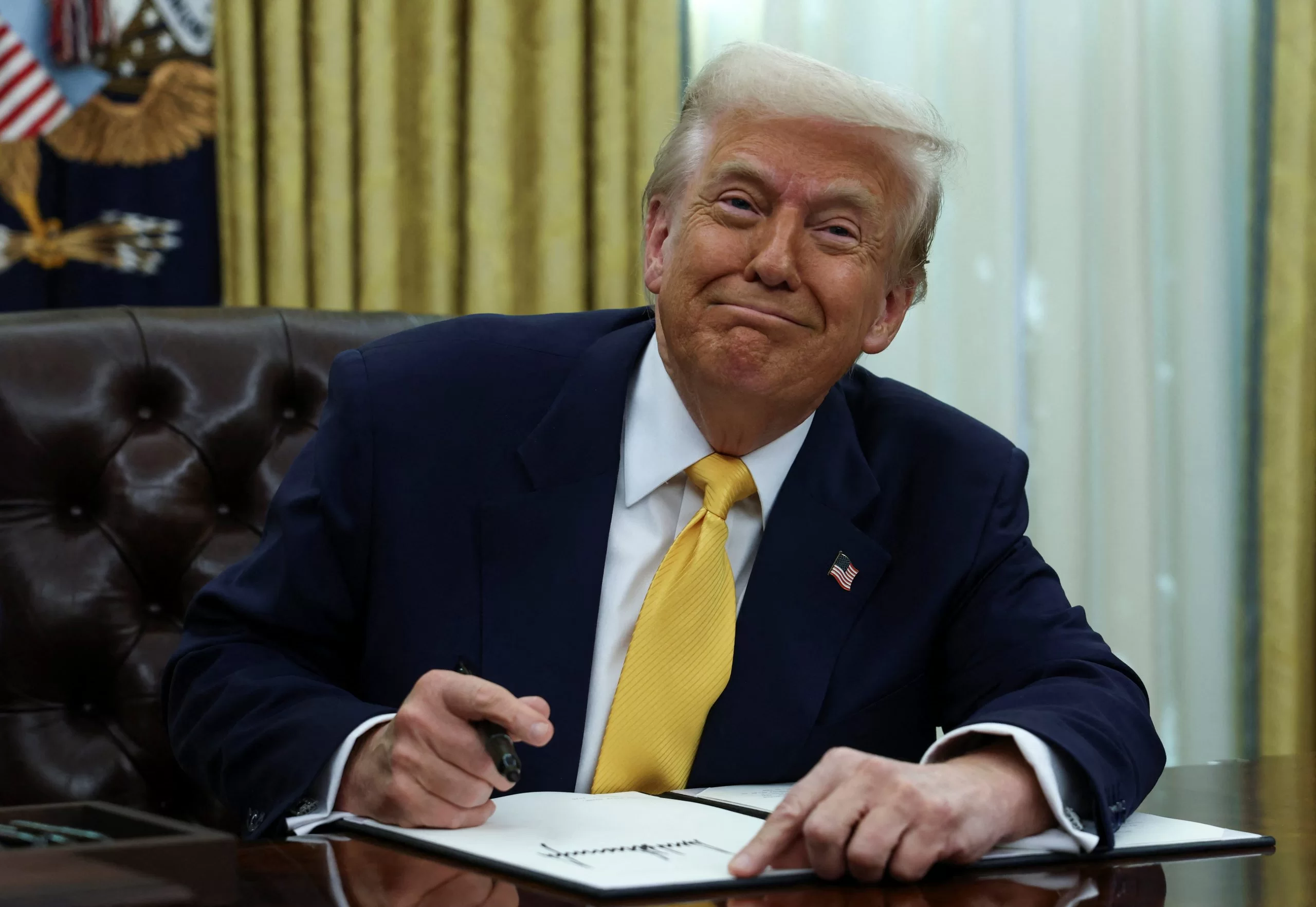- Saturday, May 10, 2025
The US president claimed the ceasefire was a result of “a long night of talks mediated by the United States”

By: India Weekly
NEARLY four days after the launch of Operation Sindoor, US president Donald Trump announced on Saturday (10) that India and Pakistan had agreed to a “full and immediate ceasefire” and congratulated them on using “common sense”.
Minutes after Trump posted the announcement on his Truth Social network, officials from Islamabad and New Delhi confirmed the development.
Pakistan’s foreign minister said both countries had agreed to a ceasefire “with immediate effect” and India’s foreign ministry said it would start at 5 pm Indian time.
“After a long night of talks mediated by the United States, I am pleased to announce that India and Pakistan have agreed to a FULL AND IMMEDIATE CEASEFIRE. Congratulations to both Countries on using Common Sense and Great Intelligence,” Trump said in a post on Truth Social.
The sudden announcement came on a day when fears spiked that the countries’ nuclear arsenals might come into play as Pakistan’s military said a top military and civilian body overseeing its nuclear weapons would meet.
But Pakistan’s defence minister later said no such meeting was scheduled.
— Donald J. Trump (@realDonaldTrump) May 10, 2025
At the same time, officials from both sides showed a willingness to take a step back following the day’s exchanges, as the combined civilian death toll on the two sides rose to 66.
US secretary of state Marco Rubio spoke separately with external affairs minister S Jaishankar and Pakistani deputy prime minister and foreign minister Ishaq Dar, and “emphasized that both sides need to identify methods to de-escalate and re-establish direct communication to avoid miscalculation”, State Department spokeswoman Tammy Bruce said in a statement in Washington Saturday (10).
For the first known time since the conflict erupted, Rubio also spoke with Pakistan’s army chief General Asim Munir, considered the country’s key powerbroker.
Over the past 48 hours, @VP Vance and I have engaged with senior Indian and Pakistani officials, including Prime Ministers Narendra Modi and Shehbaz Sharif, External Affairs Minister Subrahmanyam Jaishankar, Chief of Army Staff Asim Munir, and National Security Advisors Ajit…
— Secretary Marco Rubio (@SecRubio) May 10, 2025
China also made a similar appeal as did the G7 group of industrialized nations.
The ceasefire comes after a day that began with Pakistan attacking Indian air bases in response to what it says were overnight raids on its own.
Indian Wing Commander Vyomika Singh told a briefing earlier Saturday that there were “several high-speed missile attacks” on air bases, but “limited damage” to equipment.
Pakistan had earlier accused India of targeting three of its bases with missiles – including one in Rawalpindi, some 10 kilometres from its capital, Islamabad.
The air base is used to receive foreign dignitaries, and Saudi minister of state for foreign affairs Adel Al-Jubeir had departed just hours earlier.
“Pakistan and India have agreed to a ceasefire with immediate effect,” Pakistani foreign minister Ishaq Dar posted on X.
“Pakistan has always strived for peace and security in the region, without compromising on its sovereignty and territorial integrity!”
India’s foreign ministry said that the head of Pakistan’s military operations called his Indian counterpart on Saturday afternoon and it was agreed that both sides would stop all firing.
The two heads will speak to each other again on May 12, the ministry added.
The fighting began on Wednesday when India carried out strikes on what it said was “terrorist infrastructure” in Pakistani Kashmir and Pakistan, two weeks after 26 people were killed in an attack on Hindu tourists in Indian Kashmir.
India accused the Pakistan-based Lashkar-e-Taiba – a UN-designated terrorist organization – of carrying out the attack, but Islamabad has denied any involvement and called for an independent probe.
Since Wednesday, the two countries have exchanged cross-border fire and shelling, and sent drones and missiles into each other’s airspace.
India blames Pakistan for an insurgency in Kashmir that began in 1989 and has killed tens of thousands.
It also blames Pakistani Islamist militant groups for attacks elsewhere in India.
Pakistan rejects both charges. It says it only provides moral, political and diplomatic support to Kashmiri separatists. (Agencies)